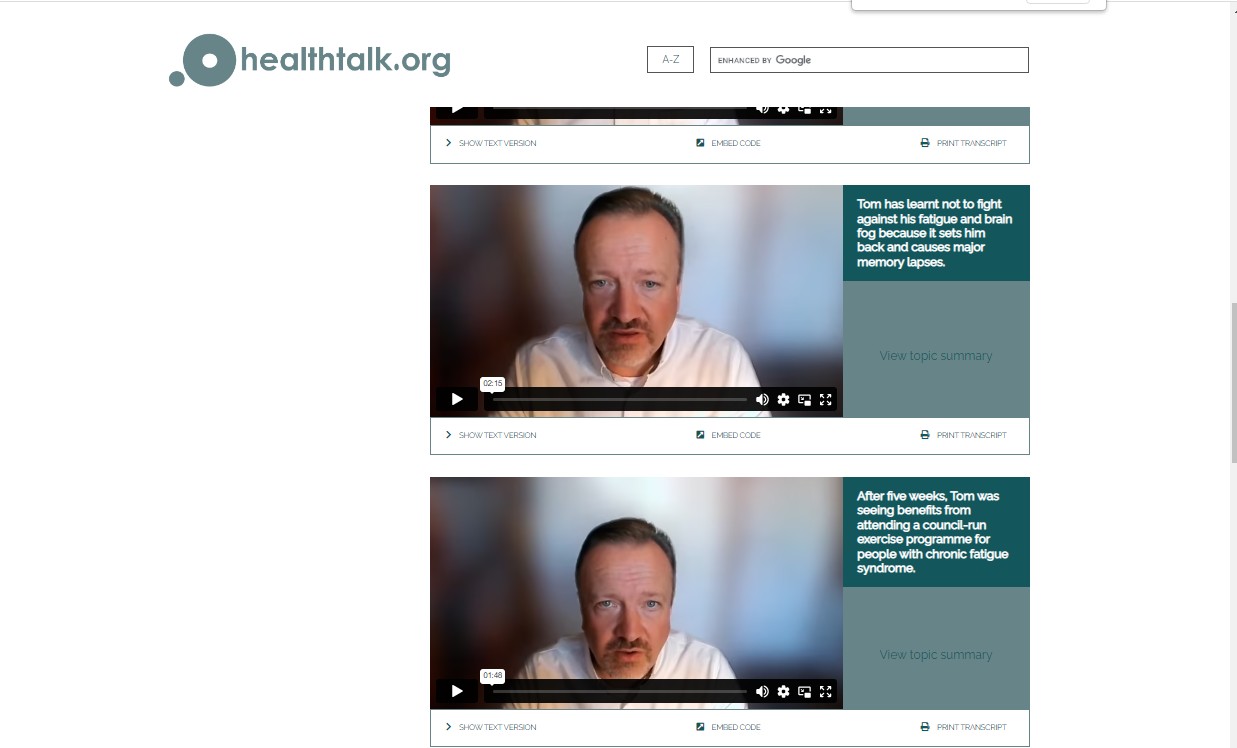Health researchers launch ‘first’ Long Covid resource for patients and health care professionals
The first resource of its kind to support those living with Long Covid and the healthcare professionals involved in their care, has been launched by experts from the University of Stirling.
/filters:format(webp)/filters:no_upscale()/prod01/cdn/media/stirling/news/news-centre/2023/march/Long-COVID_Banner_1920X689.jpg)
The first resource of its kind to support those living with Long Covid and the healthcare professionals involved in their care, has been launched by experts from the University of Stirling.
Led by Professor Kate Hunt, a specialist in behavioural sciences and health at the Institute for Social Marketing and Health (ISMH), the new online resource ‘Long Covid in Adults’ was developed by a team of researchers over two years, following detailed interviews with those living with Long Covid.
It aims to improve understanding of what it is like to live with Long Covid and support and care for those impacted by the condition.
/filters:format(webp)/filters:no_upscale()/prod01/cdn/media/stirling/news/news-centre/2023/march/Professor-Kate-Hunt-700X600.jpg)
Institute for Social Marketing and Health (ISMH)
This is a very valuable resource for patients, family and healthcare professionals and is the first resource of its kind to detail the lived experiences of adults with Long Covid, providing practical information and support for those affected and their families and carers.
The resource covers topics including people’s experiences of Long Covid, how they manage the condition day to day, seeking help from the GP, impacts on family, work and social life, the financial impact and medicines and therapies.
It includes video, audio and written extracts from interviews which bring to life the experience of living with Long Covid, as well as messages for health care professionals from those living with Long Covid, and their views on public understandings of the illness.

Videos on the website bring to life the experiences of those living with Long Covid
It is published and freely available on healthtalk.org – a website run by the Dipex Charity – which attracts millions of visitors each year and is recognised as a trustworthy source of patient experiences of health and illness.
Professor Hunt said: “This is a very valuable resource for patients, family and healthcare professionals and is the first resource of its kind to detail the lived experiences of adults with Long Covid, providing practical information and support for those affected and their families and carers.
“Many people experiencing Long Covid feel disbelieved about the debilitating nature of their illness, and many members of the healthcare professions and public don’t appreciate that Long Covid can affect people of all ages and people who were very healthy and physically active people before they got Covid.”
Dr Alice Maclean, a specialist in patient experiences of illness, also based at Stirling’s ISMH, said “The resource, now available on healthtalk.org, can be used in training for doctors, nurses, social care and other healthcare workers – and ultimately improve care to patients.”
The resource is the result of a study funded by the Scottish Government’s Chief Scientist Office. The research team included experts from ISMH and the Nursing, Midwifery and Allied Health Professional Research Unit (NMAHP-RU), also based at the University of Stirling, as well as academics from the University of Aberdeen and University of Oxford.
"Life-changing symptoms"
Researchers conducted in-depth interviews with 63 adults, with the youngest aged 20 and the oldest in their 80s.
Participant Tom, 52, continues to suffer with brain fog and ‘crippling’ fatigue many months after having Covid, and describes his symptoms as 'life-changing'. In a video which features in the resource, he says: “My life has been completely turned upside down, and the lack of medical support has been galling.”
Sarah, 43, a mother of two, also recorded her experiences of the impact of Long Covid on family life for the website. Once able to juggle several part-time jobs, she is now only able to work one day a week due to her ongoing symptoms. She said: “I'm definitely trying to protect my children, although they are teenagers, I think it's really hard for them to understand [Long Covid] because it's hard for me to understand.
“Generally, when you get ill with flu or a stomach bug, you get better after a day or so and continue to do so, progress tends to be linear.
“With this not being like that, I think that's really hard for them to cope with. The fact that one day I can play table tennis with them and have a good time and then the next day I have to say no, I really can't. I don’t like the disappointment I can see in their faces.”
The resource is being launched alongside three other Covid-related collections: ‘Long Covid in Families’ and ‘Inequalities associated with Covid’ – both developed by researchers at the University of Oxford – and ‘Experience of Intensive Care for people with Covid’ from researchers at the University of Cambridge, at an online event for policymakers, NHS representatives, healthcare professionals and Long Covid support organisations, on International Long Covid Awareness Day on Wednesday 15 March.
